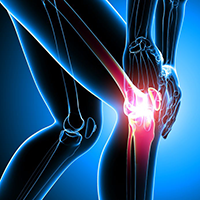One of the most frequent questions we are asked by prospective patients is: “How effective is your treatment?” Most clinics offering stem cell therapy would just make up a number because they really have no clue how effective their treatment protocols are. We wanted to know how effective our treatments were, and for that reason we started a patient registry to record our results. We record pain scores in a scale of 0-10, with ten being the worst possible pain, and function scale scores. For the knee patient registry we use the Lysholm Knee Scoring Scale, a questionnaire commonly used in orthopedic medical literature, which goes from 0-100 (the higher the score the better the function). We record the outcome scores before the treatment (baseline), at a 2 month follow up visit, and over the phone 6 months and 12 months after treatment.
We have now partial data showing the effectiveness of our proprietary treatment protocol, RegenaJoint. This data is from our knee patient registry with 69 consecutive patients undergoing 108 knee treatments being followed up for at least 6 months. Of those, and despite our best efforts, we lost contact with 8 patients representing 12 knee injections. So, what are the results of the other 61 patients and 96 knees that received our knee Regenajoint treatment? Defining treatment success as obtaining over 50% improvement in pain: out of the 96 knees treated 69 showed improvement in pain with a reduction of at least 50%. That is roughly a 72% success rates in our knee RegenaJoint treatment in a patient population where most patients had been told they needed knee replacement surgery. Furthermore, as far as we know only one patient treated with RegenaJoint has undergone knee replacement surgery within one year after our treatment. It is likely that among the patients we lost contact with there is one or more patients that has chosen to undergo replacement surgery. Even if half those patients (6 knees) had surgery (very unlikely) still the percentage of knees undergoing surgery after our treatment would be approximately 7%. Considering that most of the patients we treat have moderate to severe osteoarthritis and that the vast majority of them have been told by orthopedic surgeons that they need knee replacement surgery, a 72% success rate and a surgery rate of 7% or less is outstanding. I will discuss more data from our knee patient registry in future blogs.
Conclusion: Our RegenaJoint treatment is highly effective in treating patients with moderate to severe knee osteoarthritis. Thanks to our patient registry, now we can track our results and we can tell our patients exactly how effective our treatments are.
Schedule a free consultation today to learn how regenerative treatment can help you manage your knee pain.
To learn more about non-surgical alternatives to joint replacement surgeries go to: www.dontoperate.com .

